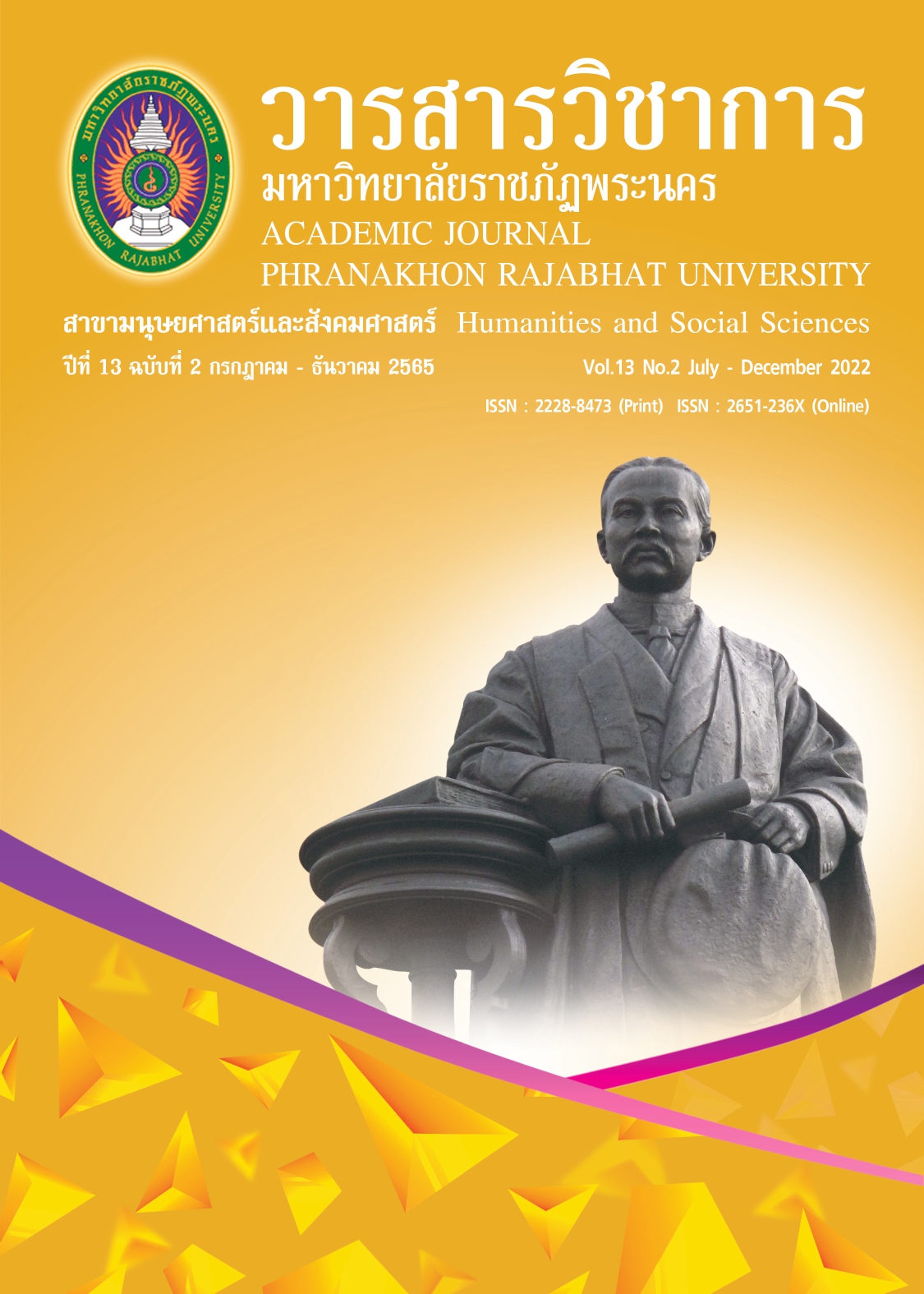THE APPLICATION OF MOOC FOR CAREERS GUIDANCE OF YEAR 3 UNIVERSITY STUDENTS IN HEILONGJIANG PROVINCE, CHINA
Keywords:
MOOC, Careers Guidance courses, Students' learning achievement, Students’ attitudeAbstract
This mixed methods research aimed to compare Year-3-university students’ learning achievement before and after the use of MOOC and examine their attitude towards the use of MOOC in a Careers Guidance course in Heilongjiang Province, China. The sample group consisted of 30 students enrolling in a Careers Guidance course in Academic Year 2021. Quantitative data and qualitative data were collected applying four lesson plans, pretest, posttest, questionnaire, and focus group interview. The quantitative data were analyzed using mean, standard deviation as well as Paired Sample T-Test. The qualitative data were analyzed using thematic analysis.
The results showed that after the use of MOOC, the students’ posttest score (=52.20, SD=13.21) was higher than the pretest score (=35.67, SD=14.04), resulting in the significant mean difference of 16.53 points. The data from the questionnaire revealed that the average mean score of all items was rated at a high level (=3.44, SD=0.74). The students’ responses from the focus group interview suggested that the students had a positive attitude towards the use of MOOC in a Careers Guidance course. Therefore, the use of MOOC contributed to an alternative effective way of teaching and learning a Careers Guidance course in the university in China.
References
Cai, W. X., & Wang, J. (2012). The First Year of MOOC. China Education Network, 4, 16-18.
Chen, H. F., & Ben, A. L. (2017). Research on the construction of “trinity” employment guidance system. Education Review, 3(10), 84–88.
Fan, X. (2017). Exploration and reflection on the innovative teaching mode of catechism in local colleges and universities--Taking college students’ career guidance course as an example. Journal of Jiamusi Vocational College, 1(10), 221–222.
Liu, R., Zhao, Y., Chai, & Xu, J. (2007). Cognitive mechanisms of multimedia learning. Journal of Beijing Normal University. Social Science Edition, 1(5), 22–27. https://doi.org/10.3969/j.issn.1002-0209.2007.05.003
Ma, Y. (2009). From the edge to the center: The evolution and important transformation of career guidance for college students. Journal of Hebei Normal University, 11(3), 108–112.
Wang, W. (2013). Development of MOOC and its impact on higher education [J]. Jiangsu Higher Education, 2013(2), 59-63.
Wu, J., Tan, G., & Song, Y. (2017). An introduction to the design of natural pharmacology lesson plans for higher education pharmacy majors in the context of education informatization. Health Professions Education, 35(23), 29–31. https://doi.org/CNKI:SUN:ZDYX.0.2017-23-016
Yao, L., Sun, Wu, G., Wang, J., & Shang, P. (2011). Exploring computer network teaching models. Exploring Computer Network Teaching Models., 9(4), 70–73.
Zhang, J., Zhang, H. X., & University, G. M. (2017). Problems and countermeasures of college students' employment guidance course. Education Teaching Forum.
Zhao. (2018). A preliminary investigation on the teaching reform of college students’ career guidance class based on WeChat platform from the perspective of MU class. Journal of Higher Education, 16(8), 152–154.
Zhou. (2009). Curriculum reform of career guidance course. Education and Career, 9(1), 1–4. https://doi.org/10.3969/j.issn.1004-3985.2009.09.06
Zhou, & Zhang, T. (2018). A brief discussion on the construction of catechism course on college students’ employment and entrepreneurship in the era of "Internet+". Journal of Hunan Industrial Vocational Technology College, 18(1), 96–98.
Downloads
Published
How to Cite
Issue
Section
License
Copyright (c) 2022 Academic Journal Phranakhon Rajabhat University

This work is licensed under a Creative Commons Attribution-NonCommercial-NoDerivatives 4.0 International License.
"บทความวิชาการในวารสารฉบับนี้ ถือเป็นความรับผิดชอบของผู้เขียนเท่านั้น"
สงวนลิขสิทธิ์ตามพระราชบัญญัติลิขสิทธิ์




